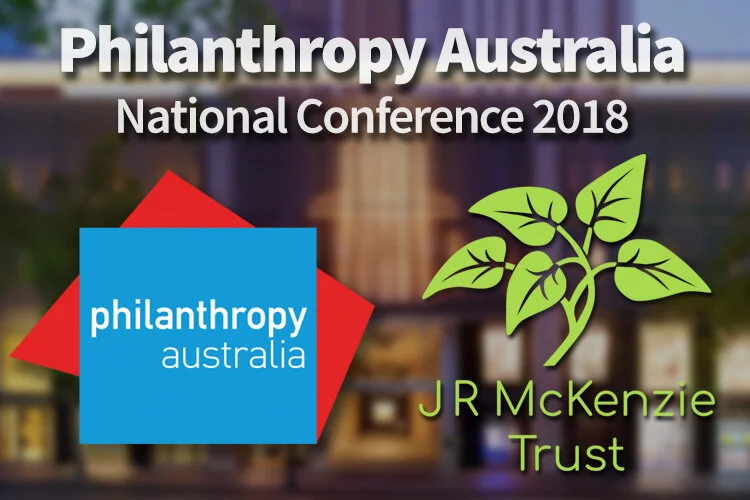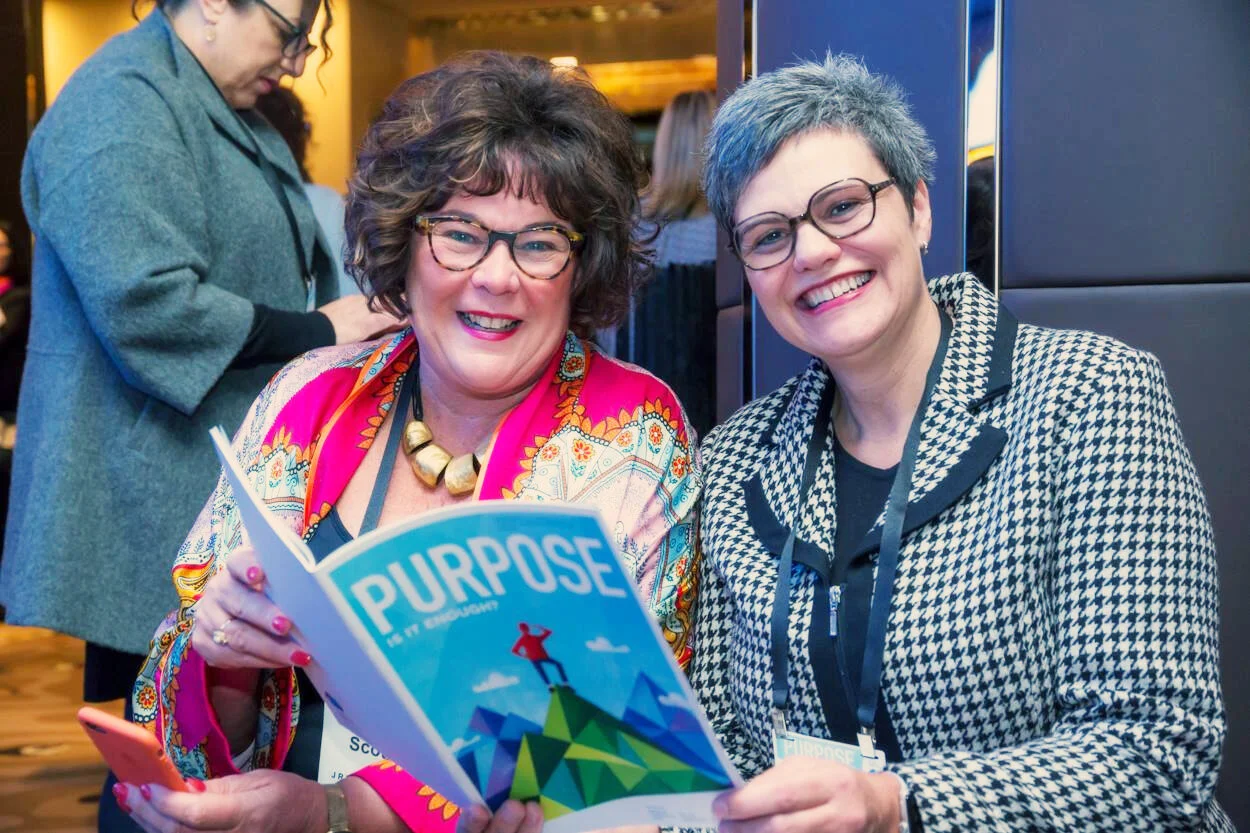JRMT at the Philanthropy Australia Conference 2018 – A wrap-up by Robyn Scott
I attended the Philanthropy Australia Conference in early September, along with around 700 other delegates. The theme for this year was “Purpose – is it enough?” and the conference offered an excellent array of topics which addressed this question. With a mix of large plenary sessions and smaller break-out panel discussions available, the two stand-out speakers for me were Fred Blackwell (CEO, San Francisco Community Foundation) and Jeremy Heimans (Co-Founder and CEO, Purpose).
Fred Blackwell provided an overview of the work the San Francisco Community Foundation (SFCF) does in the Bay area – they strive to “collaborate to make community-driven philanthropy happen”. With a reputation for having a bold agenda focused on social justice, SFCF developed a new strategy which embraced equity and racial and economic inclusion. The process they took to arrive at the new direction included engaging communities to uncover problem areas and possible solutions, enlisting experts to nut the issues out, and collecting data to see where the biggest challenges existed.
As a result, SFCF now sees itself as being less about grant making and more about amplifying the effect of its contribution to the community. Collaboration and cooperation are key where enduring positive outcomes are concerned. Fred Blackwell offered this quote from his mother which I think encapsulates this sentiment well:
““If you’ve found a solution to a complex problem that only involves yourself, you either don’t understand the problem, or you’ve found the wrong solution.””
Old power works like a currency and the powerful have a sizeable store which they aggressively guard. New power is created by many and is most potent when it surges – the goal is not to hoard it but to channel it.
Mobilisation seems to be at the heart of new power. Many examples exist worldwide (#MeToo; #BlackLivesMatter; Airbnb; Wikipedia; Uber) and domestically (Student Volunteer Army; ActionStation; JustSpeak) which demonstrate the shift in power dynamics from passive consumerism to active participation. Among those heavily engaged with new power – particularly those aged 30 years and under – there is an adamant expectation that they will actively shape or create many aspects of their lives.
So, some questions are raised: How can we use this new power to help the least powerful? How can we support communities to build power? And how can societies redesign systems and structures to meaningfully include and empower more people? I don’t have the answers, but it’s definitely got me thinking.
Jeremy Heimans’ presentation was really energising and prompted me to read both his 2014 Harvard Business Review article co-authored with Henry Timms, and view his Ted Talk. These are both worth looking at if you’d like to learn more about his work in this area.
Robyn Scott
Executive Director
J R McKenzie Trust





